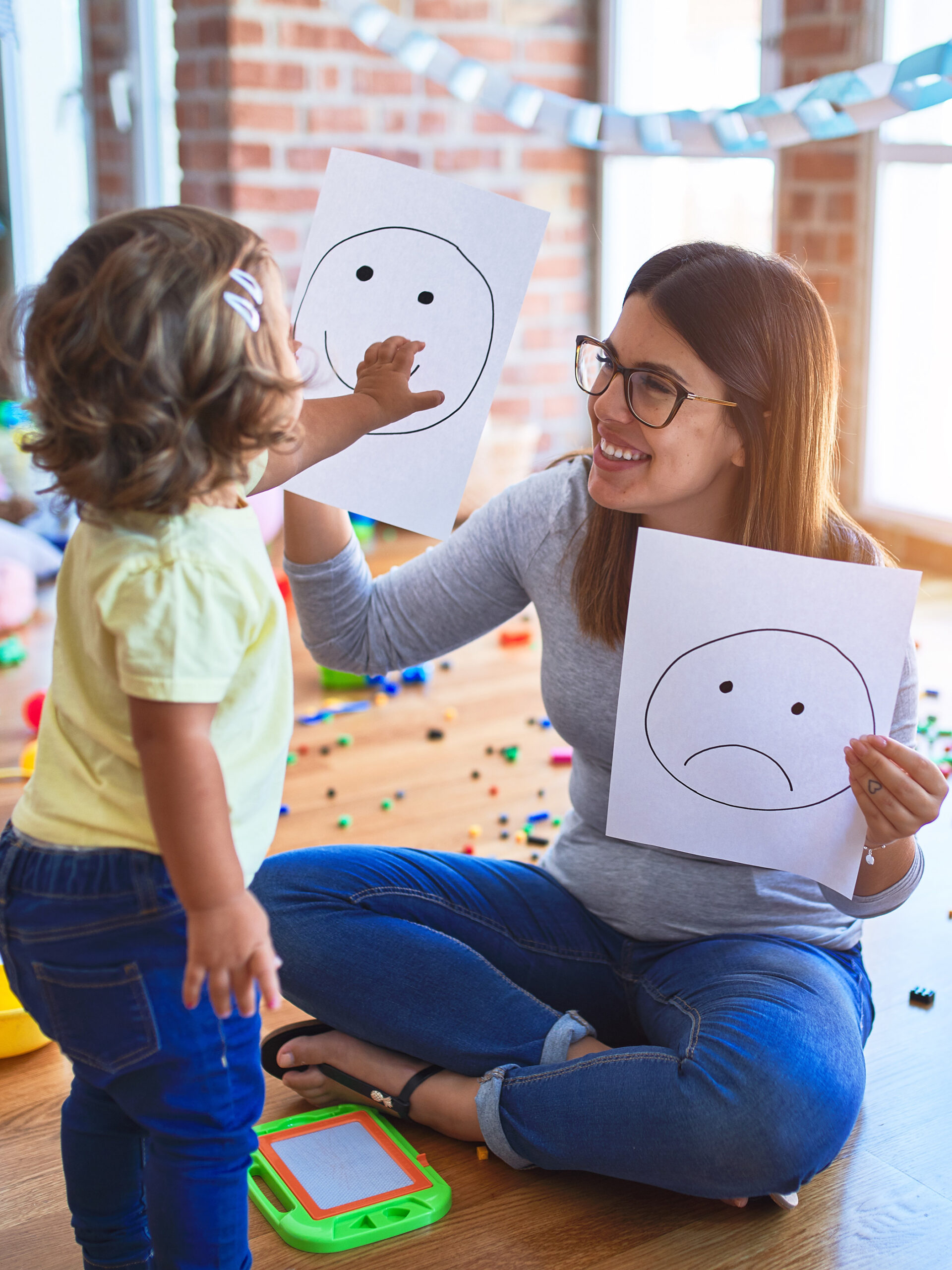MENTAL HEALTH GUIDE
Bullying
Bullying is any type of repeated, aggressive behavior that one person (or a group of people) directs at someone else with the goal of causing physical or emotional pain. Bullying behaviors are also purposeful. Accidents happen and they may result in physical harm; however, bullying is not accidental or unintentional. It is a repeated behavior; although hurtful, a one-time incident is not considered bullying.
Crisis Resources
If your child expresses thoughts of wanting to harm themselves or others, call 9-1-1 or visit the nearest emergency department.
988 Suicide and Crisis Lifeline:
Call 9-8-8
Text any message to 9-8-8
Chat online at 988lifeline.org/chat
Crisis Text Line:
Text “HOME” to 741741
Save for later
Download, print or share on social media.
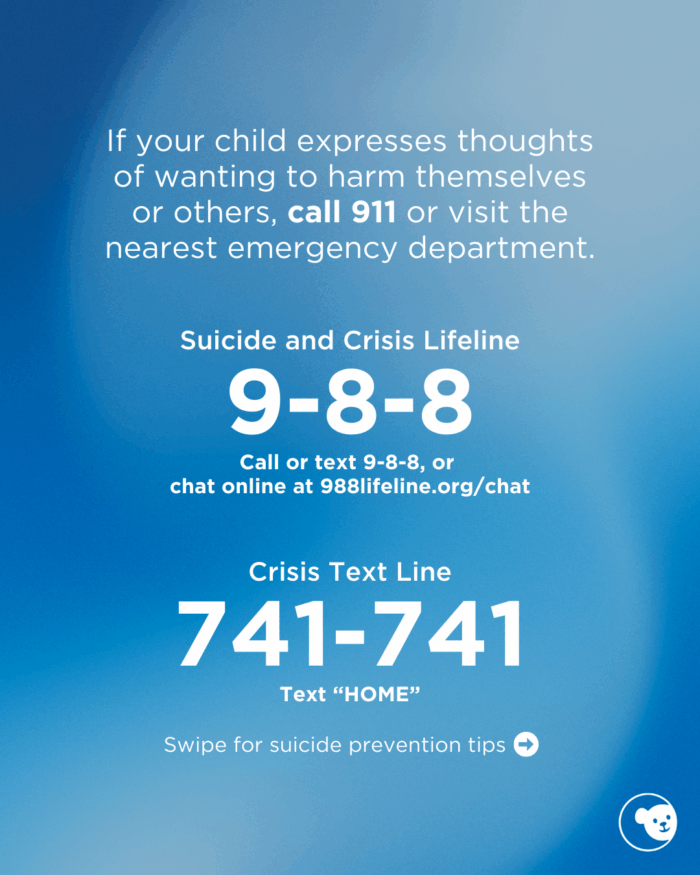
External resources
Pacer Center’s Kids Against Bullying
pacerkidsagainstbullying.org
Pacer Center’s Teens Against Bullying
pacerteensagainstbullying.org
StopBullying.gov
www.stopbullying.gov/resources/kids
Stomp Out Bullying
www.stompoutbullying.org
American Psychological Association
www.apa.org/topics/bullying/
Cyberbullying Research Center
cyberbullying.org/what-is-bullying
National Bullying Prevention Center
www.pacer.org/bullying/resources/
Learn more about CHOC’s pediatric mental health services
At CHOC, we specialize in providing a full spectrum of pediatric mental healthcare, including inpatient, intensive outpatient and outpatient program services.
Get 24/7 advice from CHOC
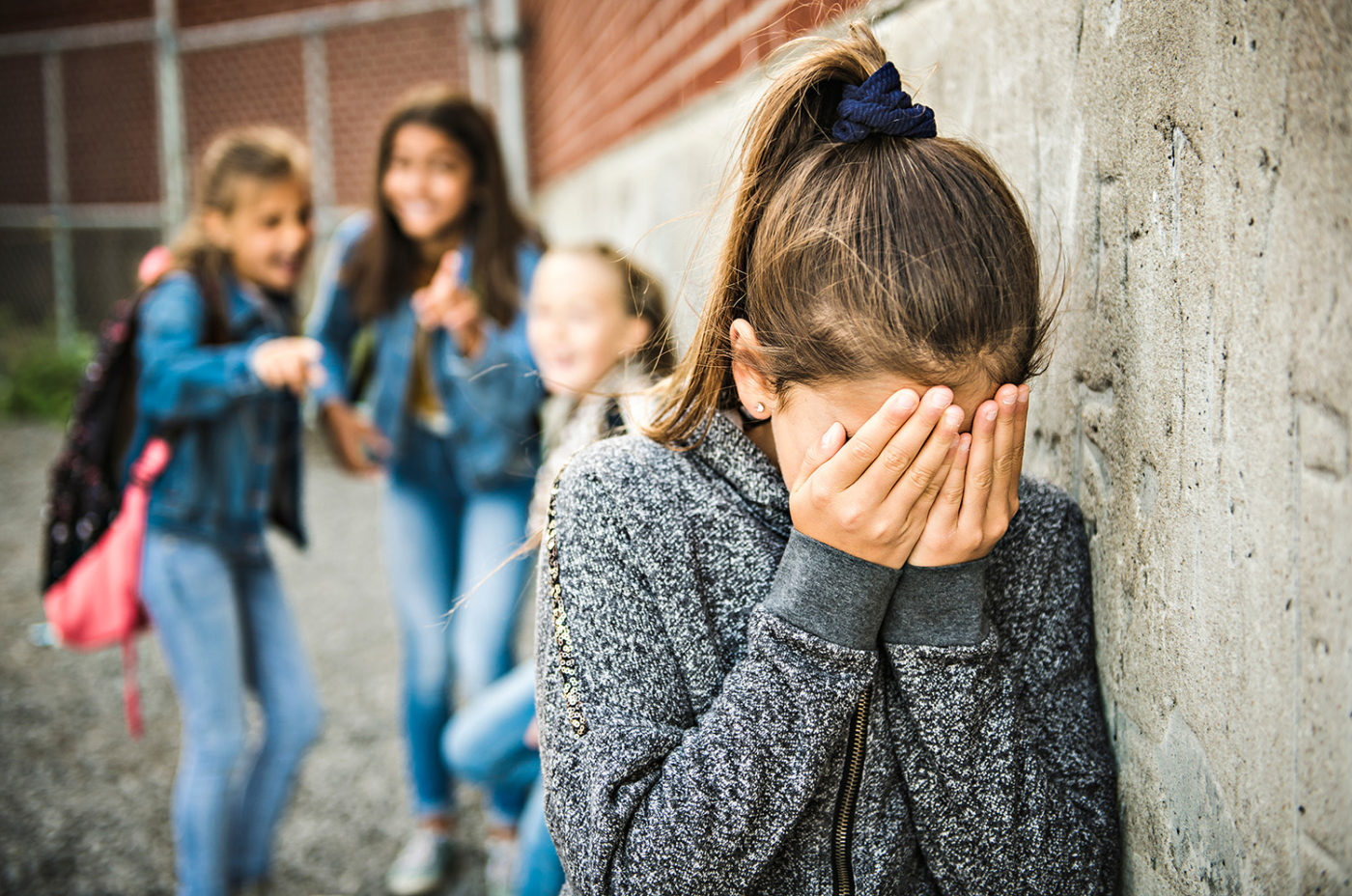
Bullying Overview
Bullying can be physical (hitting, kicking, pushing, tripping, spitting, taking or damaging someone’s belongings); verbal (teasing, name-calling, threats of violence, hurtful comments); or social (rumor spreading, public embarrassment, social exclusion). It can also happen online through cyberbullying (sending hurtful comments or messages, sharing embarrassing media or pretending to be someone else).
Bullying typically happens between people with unequal power (e.g. a stronger or older child bullying a smaller or younger child), but it may also happen between friends or children of the same size or age as they seek to become popular with peers.
Who is impacted by bullying?
- About 35% of 12- to 18-year-old students report being a victim of traditional bullying and 15% report being a victim of cyberbullying.
- LGBTQ students, religious or ethnic minorities and students with disabilities have a higher likelihood of being bullied, with 51-70% of such youth reporting bullying in the past year.
- The most common reasons for being bullied are a child’s distinctive physical appearance, race/ethnicity, appearing emotionally vulnerable or appearing socially isolated.
- Bullying has been linked with poor mental health and low school performance, especially when it persists for a long time and when children blame themselves for being physically or emotionally attacked.
- A victim of bullying is twice as likely to take his or her own life compared to someone who is not a victim. If you or someone you know has feelings of wanting to harm themselves or others, tell a trusted adult immediately. Never promise to keep it a secret.
What are the warning signs that a child is being bullied?
- Withdrawal from friends and family
- Increase in depression or anxiety
- Decrease in self-esteem
- Irritability or sudden outbursts of temper; aggressive behaviors
- Complaints of excessive headaches or stomachaches
- Increased clinginess with parents
- Fear or reluctance to go to school; avoidance of recess or school activities
- Bruises, cuts or scratches without a logical explanation; torn clothes or damaged or missing belongings
- Unusual increase in requests for money
- Atypical avoidance of social media or online gameplay
- Changes in eating or sleeping patterns
Is there a correlation between bullying, depression and anxiety?
Bullying is a common cause of depression and anxiety in teens and young adults. Teens who are regularly ridiculed and mistreated are likely to suffer from low self-esteem, which can lead to depressive-like symptoms. In addition, teens and young adults who are bullied can develop anxiety over having to socialize with peers and excessive worry about how they are viewed by others.
 Print this section
Print this section
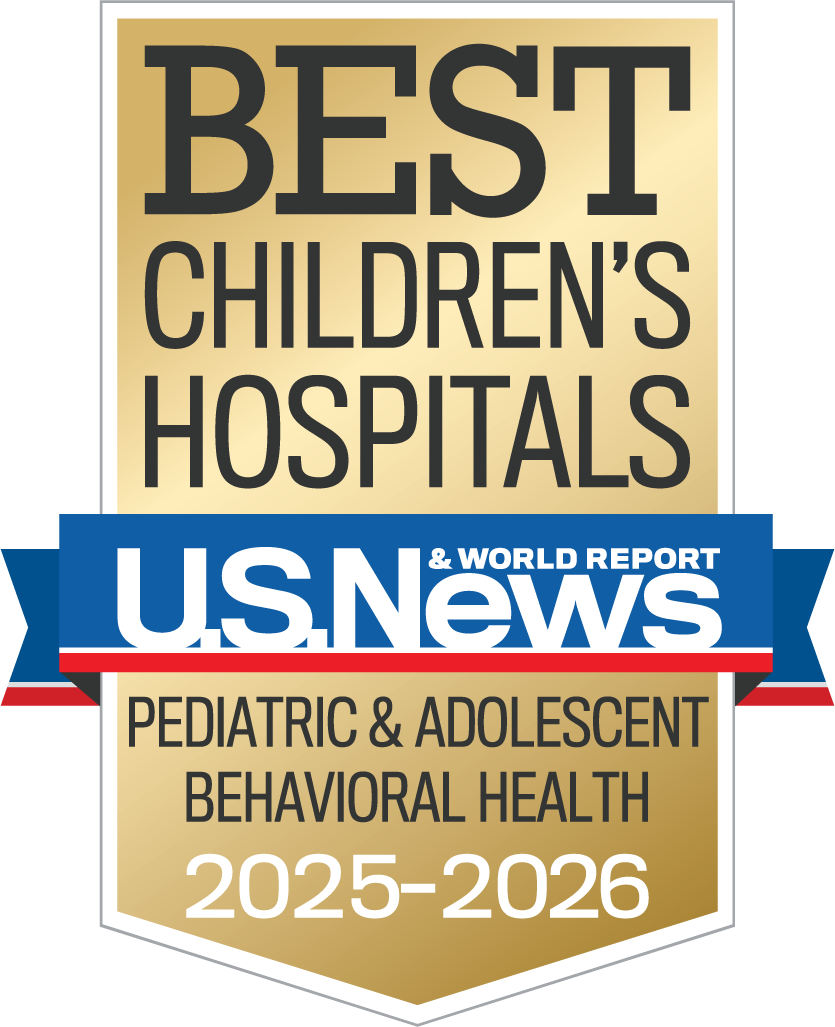
Learn more about CHOC’s Pediatric Mental Health Services
CHOC Hospital was named one of the nation’s best children’s hospitals by U.S. News & World Report in its 2024-25 Best Children’s Hospitals rankings and ranked in the behavioral health specialty.
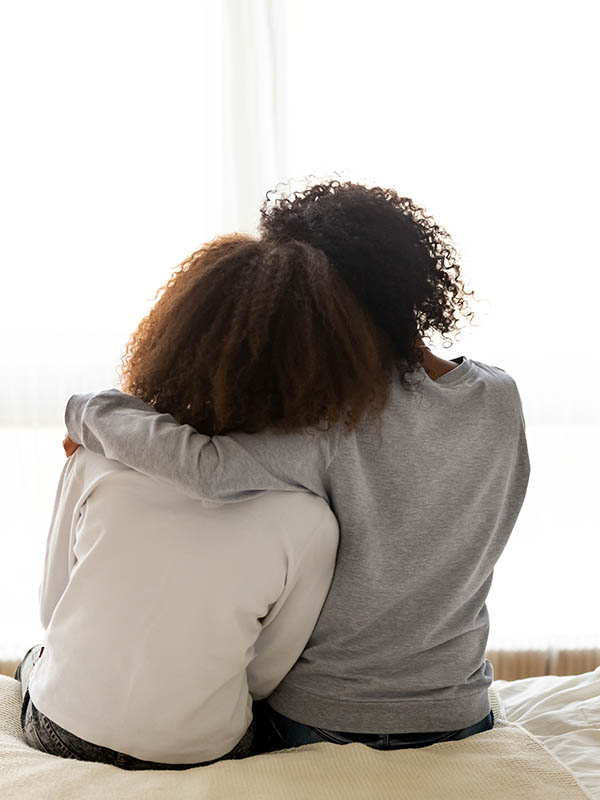
Tips for parents and caregivers of children who are being bullied
CHOC offers the following tips to help you start a conversation with your child about bullying, as well as guidelines to help you and your child combat bullying.
Build self-esteem and confidence
Provide your child with chances to develop supportive friendships. Arrange playdates for younger kids and help adolescents connect with same-age peers both inside and outside of school. Monitor relationships for positive social behaviors, such as balanced give and take.
Be aware of your child’s experiences at school
Talk with your child about what happens at school and ensure that they tell you about both positive and negative things that happen daily. Ask them open-ended questions. Regular communication ensures that children are comfortable sharing when they are having social challenges. Monitor your child’s online activity closely and restrict access to apps and websites if necessary.
Help your child recognize the signs of bullying
Have conversations about bullying. Ask questions like, What does bullying mean? Why do people bully? Who is a trusted adult that you could talk to if you witness or experience bullying? Educate your child about appropriate behaviors, both online and offline.
When your child reports bullying to you, convey unconditional support
Let them know that they don’t deserve to be bullied and that you are there to help. Tell your child you will work together to take the steps to stop bullying.
Facilitate problem-solving
Assist your child in defining the problem and the desired outcome, such as stopping bullying at school. Help your child make a list of possible solutions to the problem and select one to try.
Create an action plan with your child
Help your child come up with some good ways of responding and moving forward if they see or experience bullying. Plan out some safe ways to act in dangerous situations. Suggest your child walk with peers or other adults if they feel intimidated. Encourage your child to contact you via phone if needed. Identify other adults your child can safely contact if necessary.
Involve the school and seek professional help if needed
Check on anti-bullying policies and programs the school may have. Write down objective information about bullying incidents. Talk to teachers and administrators to resolve the situation.
If your child is showing high levels of distress and is having difficulty coping with being bullied, seek mental health services. If you feel like your child is a danger to themselves (e.g. shows warning signs of wanting to hurt or kill themselves) contact the National Suicide Prevention Lifeline at 9-8-8 to obtain crisis counseling and local referrals. Take your child to the nearest emergency department if they are in immediate danger of harming themselves.
Encourage help-seeking
Roleplay with your child and think about how to react and how to report the problem to school staff if bullying is happening at school. For cyberbullying, encourage your child to tell you if anything that happens online makes them feel scared, uncomfortable or confused.
 Print this section
Print this section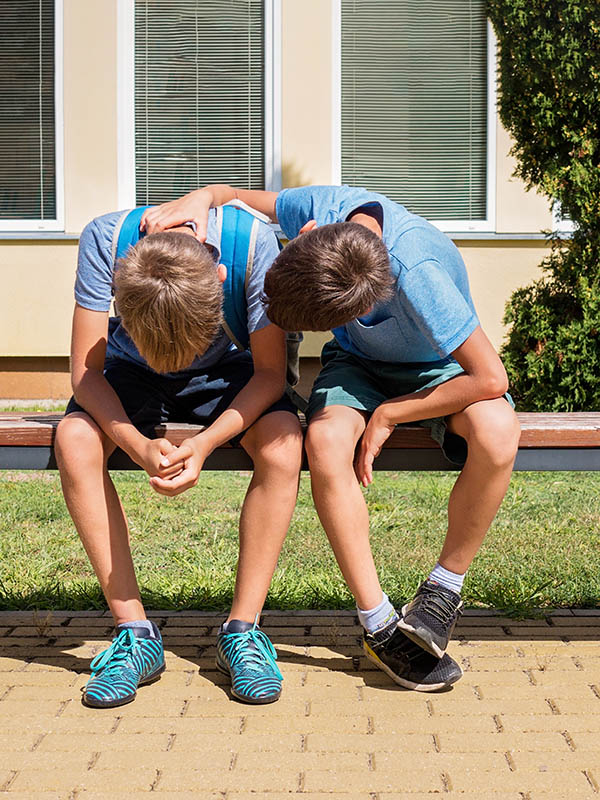
Anti-bullying tips for kids and teens
More than 70% of young people say they have seen bullying in their schools. Kids and teens who are bullied can experience physical and mental health issues and problems at school. Here are some tips on how to deal with being bullied.
You have the right to ask for help to stop bullying
Tell a trusted adult what is happening; it is not tattling or snitching. Adults can help you think of ideas to stop bullying and may implement a plan to ensure your safety and well-being. If you feel constantly sad or overwhelmed and have a hard time recovering from bullying, an adult can help you get in touch with a counselor or therapist to help. You do not have to deal with it alone.
Respond neutrally and respectfully
Avoid doing anything that might escalate the situation. Actions aimed at changing the behavior of the bully, such as fighting, getting back at them, telling them to stop or yelling are likely to make things worse. Change the topic of conversation and respond using a calm and neutral tone so that the bully is not encouraged to continue to harass you (e.g. “I have to go now because my friend is waiting for me”).
Avoid the bully
Take a different path to class. Pretend you didn’t hear the bully and walk away. Be mindful when using online chats or applications where the bully might be able to reach you. Enhance your privacy settings so that the bully cannot contact you or see your online profiles.
Act confident
Stand tall, use a calm and clear voice and make eye contact if someone tries to bully you. Bullies are less likely to continue bullying if they realize you are confident and not easily bothered, so try to avoid showing the bully you are feeling distressed by their words or actions. However, if a bully is behaving dangerously or makes you feel uncomfortable or scared, always tell an adult.
Remember that no one ever deserves to be bullied
Bullying is never your fault! You didn’t do anything to deserve to be bullied. Bullies always have their own motives for treating others poorly. For example, they might not know how to interact with peers appropriately, or they are not actively monitored by their parents. Not fitting in is not a reason for being bullied. Embrace and continue to develop the hobbies or characteristics that set you apart. True friends will admire your unique traits.
Develop supportive relationships with other children at school
Spend time with peers who can support you if you are feeling upset. Many children enjoy being kind to others and are willing to include others in activities. Treat others with kindness and respect to model how you would like to be treated.
 Print this section
Print this section
Learn more about CHOC’s Pediatric Mental Health Services
CHOC Hospital was named one of the nation’s best children’s hospitals by U.S. News & World Report in its 2024-25 Best Children’s Hospitals rankings and ranked in the behavioral health specialty.
Bullying recommended reading
 Print this section
Print this section
Related guides
Bullying can lead to feelings of worry and fear and contribute to low self-esteem in youth. As a result, bullying can contribute to the development of mental health conditions such as anxiety and depression in children and teens. For information on mental health conditions that are sometimes worsened by bullying, please visit our related mental health guides.
Additional Resources
Bullying books
- Warp Speed, Lisa Yee
- Tease Monster: A Book About Teasing vs. Bullying, Julie Cook
- Wonder, R.J. Palacio
- Just Ask! Be Different, Be Brave, Be You, Sonia Sotomayor
- ¡Solo pregunta!: Sé Diferente, Sé Valiente, Sé Tú (Spanish Edition), Sonia Sotomayor
- What are your Superpowers?, Marget Wincent
- Bullying Is a Pain in the Brain, Trevor Romain, and Steve Mark
- Stand Up to Bullying! (Upstanders to the Rescue!), Phyllis Kaufman Goodstein and Elizabeth Verdick
Related Articles
The guidance on this page has been clinically reviewed by CHOC pediatric experts.
For more health and wellness resources from the pediatric experts at CHOC:
Sign up for the Kids Health newsletter.
The contents of this webpage, including text, graphics, audio files, and videos (“Materials”), are for your general information only. The Materials are not intended to substitute qualified professional or medical advice, diagnoses, or treatments. CHOC does not recommend or endorse any specific tests, physicians, products, procedures, or other information that may be mentioned on or linked to this webpage. Always call your physician or another qualified health provider if you have any questions or problems. If you think you may have a medical emergency, call your doctor, go to the nearest emergency department, or call 911.
For more health information for your family visit health.choc.org




